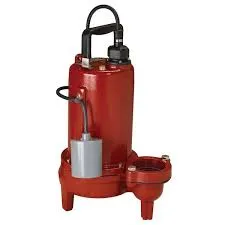English
- Afrikaans
- Albanian
- Amharic
- Arabic
- Armenian
- Azerbaijani
- Basque
- Belarusian
- Bengali
- Bosnian
- Bulgarian
- Catalan
- Cebuano
- Corsican
- Croatian
- Czech
- Danish
- Dutch
- English
- Esperanto
- Estonian
- Finnish
- French
- Frisian
- Galician
- Georgian
- German
- Greek
- Gujarati
- Haitian Creole
- hausa
- hawaiian
- Hebrew
- Hindi
- Miao
- Hungarian
- Icelandic
- igbo
- Indonesian
- irish
- Italian
- Japanese
- Javanese
- Kannada
- kazakh
- Khmer
- Rwandese
- Korean
- Kurdish
- Kyrgyz
- Lao
- Latin
- Latvian
- Lithuanian
- Luxembourgish
- Macedonian
- Malgashi
- Malay
- Malayalam
- Maltese
- Maori
- Marathi
- Mongolian
- Myanmar
- Nepali
- Norwegian
- Norwegian
- Occitan
- Pashto
- Persian
- Polish
- Portuguese
- Punjabi
- Romanian
- Russian
- Samoan
- Scottish Gaelic
- Serbian
- Sesotho
- Shona
- Sindhi
- Sinhala
- Slovak
- Slovenian
- Somali
- Spanish
- Sundanese
- Swahili
- Swedish
- Tagalog
- Tajik
- Tamil
- Tatar
- Telugu
- Thai
- Turkish
- Turkmen
- Ukrainian
- Urdu
- Uighur
- Uzbek
- Vietnamese
- Welsh
- Bantu
- Yiddish
- Yoruba
- Zulu
Telephone: +86 13120555503
Email: frank@cypump.com
Oct . 06, 2024 04:52 Back to list
septic water pump
Understanding Septic Water Pumps Essential Components for Effective Wastewater Management
Septic water pumps play a crucial role in the functioning of septic systems by facilitating the efficient movement of wastewater. These pumps are specifically designed to handle effluent from septic tanks and help ensure that waste is properly processed, preventing harmful contaminants from entering the environment.
A septic system generally consists of a septic tank where solids settle at the bottom, allowing liquid waste, or effluent, to rise to the top. This effluent is then directed to a drain field, where it is naturally filtered through the soil. However, if the drain field is situated at a higher elevation than the septic tank, a septic water pump becomes essential. It effectively lifts the effluent to the appropriate level, allowing for efficient drainage and preventing backups that could lead to unpleasant odors and health hazards.
There are several types of septic pumps, each designed for specific purposes. The two most common types are effluent pumps and sewage pumps. Effluent pumps are used to transfer treated wastewater from the septic tank to the drain field, while sewage pumps are designed to handle solid waste along with liquid waste. Understanding the difference is important for choosing the right pump for your system.
septic water pump

When selecting a septic water pump, several factors should be taken into consideration, including the pump's capacity, the distance it needs to cover, and the type of waste it will handle. It's also vital to consider the materials used in the pump's construction, as these can affect durability and performance. A quality septic pump should be made of corrosion-resistant materials to withstand the harsh environment of wastewater.
Regular maintenance of septic water pumps is essential for their longevity and efficiency. This includes routine inspections and cleaning to prevent clogging and ensure smooth operation. Homeowners should be aware of the signs indicating that a pump may need repair or replacement, such as slow drainage, strange noises, or unpleasant odors emanating from the system.
In conclusion, septic water pumps are an integral part of effective wastewater management in septic systems. By moving effluent efficiently, these pumps help maintain hygiene and protect our environment from contamination. Understanding their importance, functionality, and maintenance can aid homeowners in making informed decisions about their septic systems. Investing in a reliable septic pump not only safeguards your home but also contributes to a healthier ecosystem.
-
ISG Series Vertical Pipeline Pump - Chi Yuan Pumps Co., LTD.|Advanced Hydraulic Design&Energy-Efficient Solutions
NewsJul.30,2025
-
ISG Series Vertical Pipeline Pump - Chi Yuan Pumps Co., LTD.
NewsJul.30,2025
-
ISG Series Vertical Pipeline Pump - Chi Yuan Pumps Co., LTD.|energy-efficient fluid handling&industrial durability
NewsJul.30,2025
-
ISG Series Vertical Pipeline Pump - Chi Yuan Pumps | Advanced Engineering&Industrial Efficiency
NewsJul.30,2025
-
ISG Series Pipeline Pump - Chi Yuan Pumps | High Efficiency, Energy Saving
NewsJul.30,2025
-
ISG Series Vertical Pipeline Pump-Chi Yuan Pumps|High Efficiency&Reliable Performance
NewsJul.29,2025










